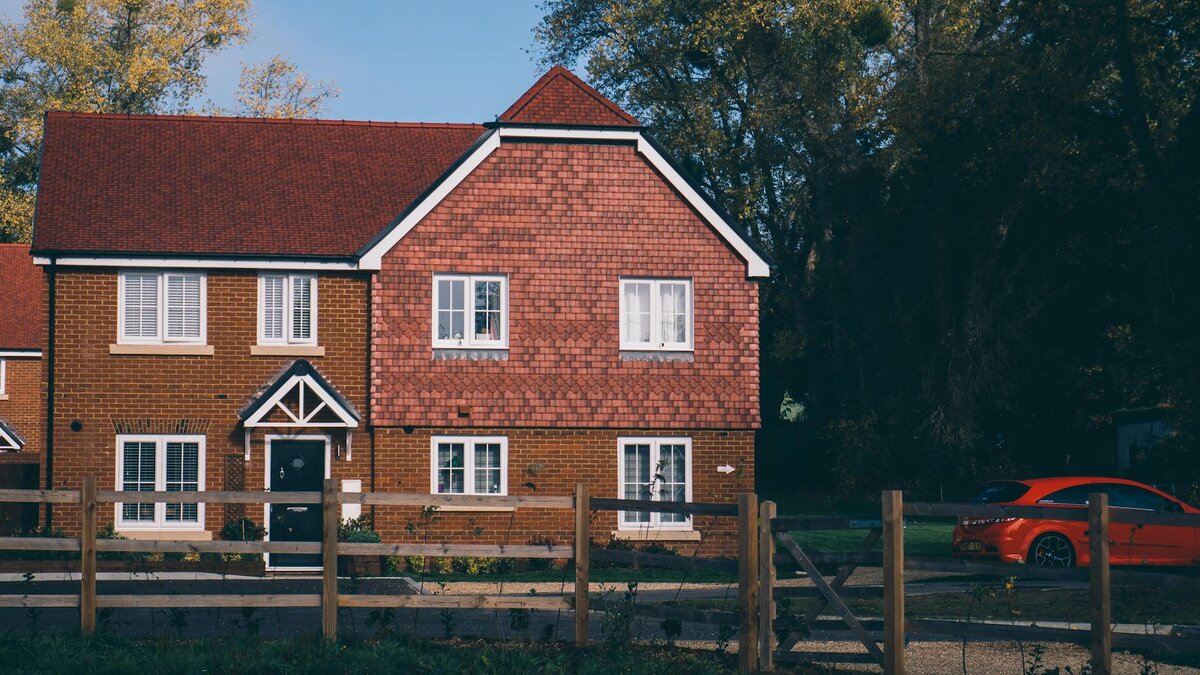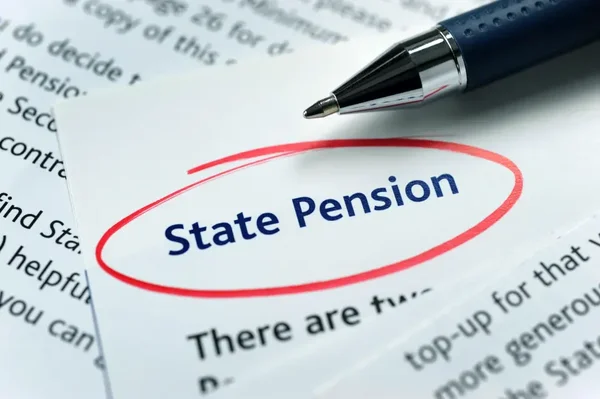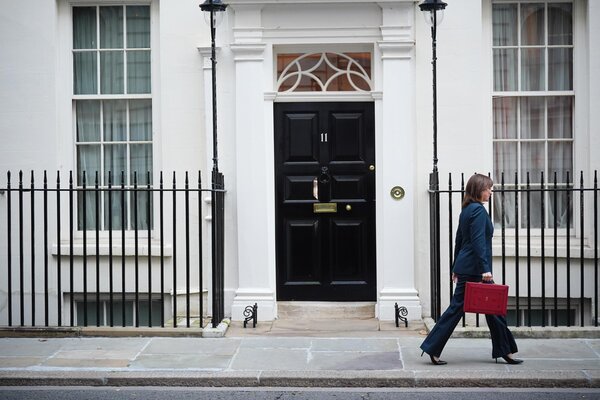Let’s Get Started
Losing a parent is tough enough without worrying about taxes. But many people are surprised to learn how inheritance tax works and that they might need to pay it on their parent's house when they inherit it.
Inheritance tax (IHT) applies when someone passes away and leaves their assets to others. The tax is calculated on the total value of the estate, including property, money, and possessions left behind.
Not everyone will face this tax burden. It only becomes relevant when an estate’s value exceeds certain thresholds. However, with property values rising significantly in recent years, more families are finding themselves affected by these rules.
Understanding the Nil Rate Band
The Nil Rate Band (NRB) is a crucial concept in understanding how inheritance tax works in the UK. It represents the portion of an individual’s estate that is exempt from inheritance tax. For the 2024/2025 tax year, the NRB is set at £325,000. This means that if the total value of your parents’ estate is less than £325,000, no inheritance tax will be due.
However, if the estate’s value exceeds this threshold, inheritance tax is charged at 40% on the amount above £325,000. It’s important to note that the NRB can be transferred to a surviving spouse or civil partner, effectively doubling the tax-free threshold for the surviving partner’s estate.
In addition to the standard NRB, there is the Residence Nil Rate Band (RNRB), which provides an additional allowance specifically for the family home. For the 2024/2025 tax year, the RNRB is £175,000. This allowance applies when parents decide to leave their home to their direct descendants, such as children or grandchildren. By combining the NRB and the RNRB, a parent’s estate can potentially pass down up to £500,000 free from inheritance tax.
For married couples or civil partners, the combined allowances can be even more beneficial. If both partners’ allowances are utilized, they can pass on up to £1 million tax-free, providing significant protection for the family home and other assets.
Do I have to pay inheritance tax on my parents' house?
The short answer is: it depends on several factors. Primarily, you’ll only pay inheritance tax if the total value of your parents’ estate exceeds the inheritance tax threshold, not just on the house itself.
Currently, the standard nil-rate band is £325,000 per person. This means the first £325,000 of anyone’s estate passes tax-free to beneficiaries. There’s also an additional allowance specifically for homes called the residence nil-rate band, which adds another £175,000 if the home passes to direct descendants.
For married couples or civil partners, any unused allowances can transfer to the surviving spouse. This potentially allows a couple to pass on up to £1 million tax-free, providing significant protection for family homes.
If the total estate value exceeds these thresholds, inheritance tax is charged at 40% on the amount above the threshold. For example, if your parents’ estate is worth £500,000 and only the basic £325,000 allowance applies, you’d pay 40% tax on the remaining £175,000 – which equals £70,000.
If your parents survive for seven years after gifting their home or a share of it to you, the property may not be subject to inheritance tax.

What exemptions might apply to my parents' property?
Several situations might exempt you from paying inheritance tax on your parents’ house. If one parent passes away and leaves everything to the surviving spouse or civil partner, no inheritance tax is due because transfers between spouses are exempt.
If your parents’ total estate falls below the combined nil-rate bands, you won’t pay any inheritance tax. Additionally, homes left to charities or community amateur sports clubs are completely exempt from inheritance tax, which is why some parents choose to leave a portion of their estate to these organisations.
The seven-year rule may also apply. If your parents gifted you their house more than seven years before they died, it might be exempt from inheritance tax. Special exemptions also exist for certain properties like working farms or businesses, which might qualify for agricultural or business property relief.
How can I reduce inheritance tax on my parents' home?
Planning ahead can significantly reduce any potential inheritance tax bill. Your parents could consider gifting their home to you while they’re still alive. If they survive for seven years after making the gift, it becomes tax-free. However, they can’t continue to live there rent-free for this strategy to work. If they continue to live in the property, they must pay market rent to avoid the property being counted as part of their estate under the gift with reservation rules.
If your parents downsize or sell their home, they can still benefit from the residence nil-rate band against the value of their former home. Setting up a trust might help in some cases, though the rules are complex and have changed substantially in recent years.
Making use of annual gift allowances during your parents’ lifetime can gradually reduce the size of their estate. Each person can give away up to £3,000 per year tax-free, and this allowance can be carried forward one year if unused. I’ve seen families save thousands by implementing a systematic gifting strategy over several years, though this requires careful planning and record-keeping.
Professional advice is essential in this area. The rules are intricate, and strategies that work for one family might be inappropriate for another based on their specific circumstances.
How Other Assets Affect Inheritance Tax
Inheritance tax isn’t limited to the family home; it also applies to other assets within the estate. This includes investments, savings, personal possessions, and more. When calculating the total value of an estate, all these assets are considered, and if their combined value exceeds the Nil Rate Band (NRB), inheritance tax may be payable.
For instance, if a parent has a life insurance policy that pays out £200,000 upon their death, this amount is added to the estate’s value. If the estate already exceeds the NRB, the life insurance payout will be subject to inheritance tax.
It’s essential to consider all types of assets when planning for inheritance tax, including:
- Investments, such as stocks and shares
- Savings, including ISAs and pensions
- Personal possessions, such as jewelry and artwork
- Business assets, such as shares in a company
By taking a comprehensive view of all assets, you can better understand the potential inheritance tax liability and plan accordingly to minimize it.

Capital Gains Tax on inherited property
When you inherit a property, understanding Capital Gains Tax (CGT) is crucial. CGT is a tax on the profit made from selling an asset, including inherited property. If you decide to sell the inherited property, you may be liable for CGT on the gain made since the date of inheritance.
For residential property, the CGT rate is:
- 18% for basic-rate taxpayers
- 28% for higher-rate taxpayers
To calculate the gain, determine the market value of the property at the date of inheritance and subtract it from the sale price. You can also deduct allowable expenses, such as solicitors’ fees and estate agent fees, to reduce the gain.
Keeping detailed records of the property’s value at the date of inheritance and any expenses incurred during the sale process is essential to ensure you’re paying the correct amount of CGT.
Gifting away property to avoid inheritance tax
Gifting property to avoid inheritance tax can be a tempting strategy, but it comes with complexities and risks. If you gift a property, it may be considered a Potentially Exempt Transfer (PET). This means that if you survive for seven years after making the gift, it will be exempt from IHT. However, if you pass away within seven years, the gift will be included in your estate for IHT purposes.
Additionally, if you continue to live in the gifted property or receive any benefit from it—such as rent or use of the property—it may be classified as a Gift with Reservation of Benefit (GROB). In this case, the property will still be included in your estate for IHT purposes, even if you’ve gifted it away.
Given the potential pitfalls, it’s essential to seek professional advice before gifting property. A tax adviser can help you understand the implications and ensure you’re making an informed decision.
Income Tax Implications
Inheritance tax isn’t the only tax consideration when inheriting a property; income tax implications can also arise, particularly if the property is rented out. If you decide to rent out the inherited property, the rental income will be subject to income tax. The tax rate will depend on your income tax band, which can range from 20% to 45%.
Additionally, if you choose to sell the inherited property, you may be liable for capital gains tax (CGT) on any profit made since the date of inheritance. The CGT rate for residential property is 18% for basic-rate taxpayers and 28% for higher-rate taxpayers. However, there may be reliefs available, such as the annual exemption, which can reduce the taxable gain.
It’s crucial to seek professional advice to understand the full scope of income tax implications when inheriting a property. A tax adviser can help you navigate these complexities, ensuring that you meet all tax obligations and take advantage of any available reliefs. This proactive approach can help you manage the financial impact of inheriting a property more effectively.
Tax implications of selling an inherited property
Selling an inherited property can have significant tax implications. As mentioned earlier, you may be liable for Capital Gains Tax on the gain made since the date of inheritance.
If the inherited property was the main residence of the deceased, you might be eligible for Private Residence Relief (PRR), which can reduce or eliminate your CGT liability. However, if the property was rented out, you may also need to consider income tax on the rental income received since the date of inheritance.
Navigating these tax implications can be complex, so seeking professional advice is crucial. A tax adviser can help you understand your obligations and take advantage of any available reliefs.

What happens after I inherit my parents' house?
After inheriting your parents’ house, you’ll need to get it professionally valued as part of the probate process. This valuation helps determine if any inheritance tax is due on the estate as a whole.
The executor of the will is responsible for paying any inheritance tax, usually from the estate’s assets. This payment needs to be made within six months of the person’s death to avoid interest charges, which can add up quickly.
You’ll face a decision about whether to keep or sell the property. If you sell soon after inheriting, there’s usually no capital gains tax to pay. However, if you keep the property, any future increase in value might be subject to capital gains tax when you eventually sell. A life insurance policy can also be a strategic tool to cover any potential inheritance tax liabilities, ensuring that the estate can be settled without financial strain.
Keep all paperwork related to the inheritance and any tax paid, as you might need it for future tax returns or if HMRC has questions about the estate settlement.
When should I start planning for inheritance tax?
The best time to think about inheritance tax is well before it becomes an issue. Early planning provides more options and potentially greater tax savings. Having open conversations with your parents about their wishes and financial situation can help everyone prepare properly.
How parents decide to manage their assets—such as whether to gift shares of their property to their children—can significantly impact future inheritance tax liabilities.
Getting advice from a qualified tax professional or solicitor who specialises in estate planning is invaluable. They can help you navigate the complex rules and find the best approach for your family’s specific circumstances.
Remember that tax rules change over time, so regular reviews of any plans are important. While inheritance tax planning might feel uncomfortable to discuss, it could save your family thousands of pounds in the long run.

Seeking professional advice on inheritance tax
Inheritance Tax (IHT) is a complex and nuanced area of tax law. With rising house prices and increasing IHT liability, seeking professional advice is essential to make informed decisions about your estate.
A qualified tax adviser or solicitor can help you:
- Understand how IHT works and how it applies to your estate
- Identify tax-free allowances and reliefs available to you
- Develop a strategy to minimise your IHT liability
- Ensure you’re meeting your tax obligations and avoiding potential pitfalls
Don’t leave your estate planning to chance. Professional advice can help you protect your loved ones and minimise your IHT liability, ensuring peace of mind for you and your family.
Final thoughts on inheritance tax
Inheritance tax on your parents’ house doesn’t have to be a nasty surprise if you understand the rules and plan accordingly. The nil-rate bands offer significant protection, especially for married couples passing on family homes to their children.
With proper planning and professional advice, many families can reduce or even eliminate their inheritance tax liability. Remember, the tax situation is unique to each family, so getting personalized advice is always recommended. Understanding how different components of an estate are accounted for under inheritance tax purposes is crucial for effective planning.
Pie is the UK’s first personal tax app designed to help working individuals manage their tax burdens effectively. With its integrated bookkeeping, real-time tax figures, and simplified tax return processing, Pie makes dealing with tax matters much less stressful – including planning for inheritance tax.









